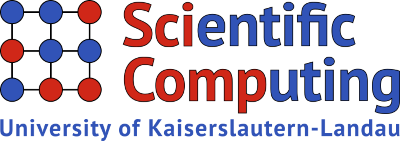Date and Place: Thursdays and hybrid (live in 32-349/online via Zoom). For detailed dates see below!
Content
In the Scientific Computing Seminar we host talks of guests and members of the SciComp team as well as students of mathematics, computer science and engineering. Everybody interested in the topics is welcome.
List of Talks
Event Information:
-
Thu02Jun2022
SC Seminar: Paula Harder
12:00Online
Paula Harder, Fraunhofer ITWM, Kaiserslautern
Title: Physics-Constrained Learning of Aerosol Microphysics
Abstract:
Aerosol particles play an important role in the climate system by absorbing and scattering radiation and influencing cloud properties. They are also one of the biggest sources of uncertainty for climate modeling. Many climate models do not include aerosols in sufficient detail due to computational constraints. In order to represent key processes, aerosol microphysical properties and processes have to be accounted for. This is done in the ECHAM-HAM global climate aerosol model using the M7 microphysics, but high computational costs make it very expensive to run with finer resolution or for a longer time. We aim to use machine learning to emulate the microphysics model at sufficient accuracy and reduce the computational cost by being fast at inference time. Building on our previous work, we demonstrate a machine learning approach to emulate the M7 microphysics module. We investigated different approaches, neural networks as well as ensemble models like random forest and gradient boosting, with the aim of achieving the desired accuracy and computational efficiency, finding the neural network (NN) appeared to be the most successful. We use data generated from a realistic ECHAM-HAM simulation and train a model offline to predict one time step of the aerosol microphysics. The underlying data distribution is challenging, as the changes in the variables are often zero or very close to zero. We do not predict the full values, but the tendencies. To incorporate physics into our network we explore both soft constraints for our emulator by adding regularization terms to the loss function and hard constraints by adding completion and correction layers.
How to join online
The talk is held online via Zoom. You can join with the following link:
https://uni-kl-de.zoom.us/j/62521592603?pwd=VktnbVlrWHhiVmxQTzNWQlkxSy9WZz09
